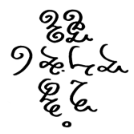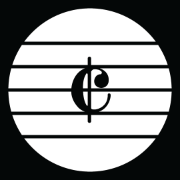All Activity
- Past hour
-
user011235 started following Piano Sonata No. 1 in Eb Major
-
A little piano sonata originally composed in 2018. I tried touching it up a bit... I'm still not happy with it (for example I left out any dynamics except in the beginning and ending measures), and i'm publishing it still in its rough form. Here's why: I think this piece illustrates one of the main problems I face when composing, which I've mentioned before but basically is: too many ideas for multiple ways i could do things, + lack of knowledge that would guide me to choose one of those options over another. I often feel like I have no guiding forces governing the choices I make when composing, and so I end up with pieces that don't have that cohesive deliberateness indicative of someone who really knows what they're doing. Any feedback is welcome, on this piece specifically or on how I could solve this greater issue with my composing. That being said, please enjoy 😅 I'm still quite fond of this sonata, it's got a decidedly galant sound but with my own idiosyncrasies thrown in.
- Today
-
An arrangement for choir and orchestra of my Overture in C-sharp minor, originally intended for string orchestra alone and first posted yesterday morning. As stated in the original post, this piece's overall character stems from the metaphor of a harsh storm passing, as hinted by the German title shown in the score: "Der abflauende Sturm" (roughly translatable as "The Passing Storm"). Alongside the initial version of the score, now transposed one half-step lower to C minor, two flutes, two oboes, a basoon and a five-part choir have also been added (though only the vocal parts are shown in the video itself, as the others are doubling each voice respectively). The latter's lyrics are a poem I wrote in German more than 3 years ago, back in late April 2022, which reads as follows: Im kaltesten Winter hätt' ich weder Mantel noch Decke, auch keine warme Suppe oder rauchige Salzkartoffeln, nicht mal Orten neben Schornstein, kein Licht einer Kerze. Im heißesten Sommer wär' ich an keinen goldenen Stränden, auch kein' üppigen Wälder will ich schon besichtigen, zwischen Wolken erreichen mich keine Sonnenstrahlen. Entweder ganzleblich, Jahr über oder seit einer Instant gibt es im ganzen Welt nichts was ich will, und es finden können nirgends weder ich noch niemand. Each of the three stanzas are almost evenly distributed across each of the five voices: the basses and tenors sing the first one, the altos and mezzosopranos the second, and the third is reserved for the sopranos. This poem happened to be exceedingly convenient in length to set music to, an advantage which I think I have made good use of here. A rough translation of the poem into English is provided below: In the coldest winter I would have neither coat nor cover, neither would I have a warm soup nor smoked potatoes, not even a place by the fireplace, nor the light of a candle. In the hottest Summer I would stand in no golden shore, nor would I visit any lush forests, no sunrays reach me from between the clouds. For neither in a lifetime, over the years nor for a single moment, is there in the entire world anything of what I want, and that no one can find, neither I nor anyone else. YouTube video link:
-
Thank you, I guess. That's certainly an interesting assertion comming from someone who would otherwise call true masterpieces such as Henry's String Sextet "static" or lacking in "originality", "style", and "uniqueness" though, so taking your word on how compelling the quality of this humble work of mine may be might as well be a fool's arrend, to be sure. Also, I'm not entirely sure why you would feel the necessity to make a wholesale montage of the score's first page, but props for the editing skills I suppose.
- Yesterday
-
PeterthePapercomPoser started following Orchestral Overture in C-sharp minor. and 🟫 𝑩𝒐𝒍𝒆𝒓𝒐-𝑴𝒊𝒏𝒖𝒆𝒕-𝑩𝒂𝒓𝒐𝒒𝒖𝒆
-

Orchestral Overture in C-sharp minor.
FILMSCORE replied to Fugax Contrapunctus's topic in Orchestral and Large Ensemble
... -
A 𝑩𝒐𝒍𝒆𝒓𝒐-𝑴𝒊𝒏𝒖𝒆𝒕-𝑩𝒂𝒓𝒐𝒒𝒖𝒆 Triple-Montage.
-
- 𝑩𝒐𝒍𝒆𝒓𝒐-𝑴𝒊𝒏𝒖𝒆𝒕-𝑩𝒂𝒓𝒐𝒒𝒖𝒆
- arranged & produced by: filmscore
- (and 1 more)
-
MuseScore - what is it missing?
pateceramics replied to Alex Weidmann's topic in Music Notation Software Help and Discussion
I'm curious to know who made that comment. I can't really think of anything that you can't do these days, at least through manual adjustment. Maybe if you are doing really funky contemporary scores that deviate from standard sheet music styles, but that's not going to be a problem for most people. Then again, I'm not a publisher or a professor, and they are allowed to have a standard program that they prefer to receive files in to make their lives easier for marking up scores, editing, etc. Sometimes something is the standard just because at some point it was the most commonly used, and it's annoying to switch between different programs all the time which aren't compatible with each other, not because one is actually better. That said, I'm annoyed at Musescore every time they come out with an update and they move all the features around so I have to relearn where to find things.- 1 reply
-
- 1
-

-
Henry Ng Tsz Kiu started following Orchestral Overture in C-sharp minor.
-

★JAZZ & ROCK Orchestration-Composition
FILMSCORE replied to FILMSCORE's topic in Jazz, Band, Pop, Rock
2 ROCK track Compostions.- 1 reply
-
- wrriten arranged & produced by filmscore
- jazz bigband
- (and 1 more)
-
Unable to sleep once again, this early morning I have managed to compose a Late Romantic-style overture for string orchestra. This piece's overall character stems from the metaphor of a harsh storm passing, as hinted by the German title shown in the score: Der abflauende Sturm. Albeit short, compared to my usual standards it is both quite emotional and reflective simultaneously as I tried to pour my feelings on the current state of affairs in my life into music, and I must say, in terms of either harmonic variety and dynamic expression, I think it turned out better than I could have ever imagined, especially considering the fact this work and its idiosyncrasies are pretty far removed from my usual compositional style. Enjoy! YouTube video link:
-
PeterthePapercomPoser started following MuseScore - what is it missing?
-
Alex Weidmann started following A New Light
- Last week
-
Henry Ng Tsz Kiu started following MuseScore - what is it missing?
-
Alex Weidmann started following MuseScore - what is it missing?
-
Hi all. Just wanted to ask a general question about scoring software. I've been using MuseScore for a couple of years now, but have been told it's not capable of producing an engraving to professional standards. Just wondered what features it's missing that would be essential to professional quality work?
-

Does creativity lead to narcissism?
Rich replied to PeterthePapercomPoser's topic in Composers' Headquarters
Looking at Peters original post, he wonders if focusing on composition work is narcissistic. I don't think so--at all. When I am working I need quiet and 100% of my bandwidth to do work. Thats how it is, and I suspect thats how it is with many. Writing music is hard. Being ultra focused is just part of this, as is any pursuit of such complexity. It certainly isn't clinical narcissism, and anyone labelling a person so dedicated to their craft/job/pusuit is ignoring what is involved. And nothing of great value can be created in this world without that kind of focus----art, music, engineering, architecture, scientific pursuits.... -
PeterthePapercomPoser started following 🆕★Guessing-Game №2
-

Does creativity lead to narcissism?
FILMSCORE replied to PeterthePapercomPoser's topic in Composers' Headquarters
So whats your point ? https://kainramsay.com/resources/excellence-is-a-standard-that-requires-discomfort/ -

Does creativity lead to narcissism?
Rich replied to PeterthePapercomPoser's topic in Composers' Headquarters
Personality disorders and ability are seperate things. A person can be gifted and quite talented and still normally adjusted--able to love and work with others as individuals. Conversely, a person could be just as gifted and isolated/ill to the point of being delusional. Wagner vs. John Williams, for example.... Or a complete hack. Which is likely more often the case----the gradiosity covers for their failings. -

Does creativity lead to narcissism?
FILMSCORE replied to PeterthePapercomPoser's topic in Composers' Headquarters
"Excellence is the standard ............& ...............the standard is Excellence" Excellence is a standard that requires discomfort. ... At all times, people either strive for excellence or settle for 'ok'. -
Who can guess the Name of these 3 REVERSED Main-Title Themes ? Hint: JW.
-
Henry Ng Tsz Kiu started following Romance for Orchestra
-

Romance for Orchestra
FILMSCORE replied to Some Guy That writes Music's topic in Orchestral and Large Ensemble
Sounds Very-Smooth, and in some places, like a Huge Symphony-Orchestra. Your "playability, balance, and formal fluidity" ............................is 100%- 1 reply
-
- 1
-

-
Hello Young Composers, Today I present a Romance I've been working on for awhile. This is one more of my more edited pieces, I've spent some of the most time on this piece than almost any of my orchestral movements. This piece was written initially with the goal of imitating a Rachmaninoff style Romance. Before you get excited, I can fully say that is not how this piece ended up, but I would still be willing to say this is probably my best piece yet. It's definitely my favorite. I was hoping to save posting this piece until I finished the suite it will be apart of, but I simply have not had the time, motivation, or research to write what I would like. This piece airs on the dramatic side of things. As always criticism is welcome, even if you cannot find the words to make it constructive. I'm especially curious about playability, balance, and formal fluidity.
- 1 reply
-
- 2
-

-
-
.thumb.jpg.e5f26b712b4f9622f521b10d8a53c6d6.jpg)
Chopin style Waltz!!!!!
Samuel_vangogh replied to Samuel_vangogh's topic in Incomplete Works; Writer's Block and Suggestions
Hi!! Thank you for taking the time to review my waltz! I appreciate the feedback. As for the purpose of this assignment: I think this way we learn about melodic embellishment and development. Because we have to do a sonata (practice of form and development), a waltz, and a Brahms (practice of counterpoint and romantic harmonies) As for the bars you mentioned: those bars have a dissonant countermelody or fioraturas, so I thought that adding the seventh was maybe too much, but I shall consider it! Thank you! -
Hey Samuel! This waltz is not bad. You have captured most aspects of Chopin's compositional style: chromaticism, melodic decorations or fioritura (e.g., in bar 26), and inner voicings are some of those. You utilized this in your main theme, which contains notes that alternate between voices. Also, you used passing notes in the accompaniment (e.g., in bars 2, 6, 9, 11, and 22-26), a typical feature of Chopin's waltzes. Great job! However, I have a few comments on your choice of harmony and style. Having three-bar phrases in the main theme of a waltz is somewhat unusual but innovative. Besides, I feel that the harmony in bars 18, 22, 24, and 45 could be richer: you could use dominant seventh instead of dominant chords. I'm unsure of the reason for the tonic seventh chord in bar 33: which note does the D resolve to? As you described, it feels a little awkward, but that might be me. Also, there's a parallel octave between the bass and melody in bars 34-35, which might be something to avoid in a Classical or early-Romantic composition. Overall, I feel that this piece has room for improvement in terms of harmony. I am curious — what is the objective of this assignment? It's too bad that I did not enroll in a music school; otherwise, I would have enjoyed doing these assignments so much. 🙃 Carl Koh Wei Hao
-
Hi Alex and Peter, I did rework sections with trills and the violin figures. I also discussed the chnages with my mentor. Of course removal of the trills creates some clarity; it also changes the overall feel of the work. So after experimentation - I decided to keep the trills. I believe there inclusion creates a certain atmosphere/tension in the work. Mark
-
Terry joined the community
-
FILMSCORE changed their profile photo
-
Yes, you're dead right about that. Will take most of those staccato marks out in my next revision. Glad you liked it otherwise! I created the piece in sporadic bursts of rapid composition over the course of three months or so, with long breaks inbetween. Each time I came back to it, the character of the next section I composed was always different from the previous section. At one point it was sounding a bit too saccharine sweet: so I decided to introduce an octatonic scale, then played with dissonance to make a more contemporary sounding ending. Didn't really analyse the tone clusters I made, just experimented with lots of copying and pasting between instruments, and moved pitches around. Think the results were quite Stravinskian. I don't expect it'll ever be played by a real orchestra: so not sure I'm going to bother with a proper score? Also: I found this cool video on You Tube of what life may be like on Tau Ceti f:
-
I actually like those triplet gestures. You can't hear them very clearly in the mix; but they create a blurry effect that I enjoy.
-
Theme for a Star Trek podcast
Alex Weidmann replied to Alex Weidmann's topic in Orchestral and Large Ensemble
Peter, many thanks for listening! The key modulations were designed to move the music up a gear: so it would ramp up tension. The final chord is intended to be a little surprise at the end, and it just felt right to me; although it's a suspension. ("We Are The Champions" by Queen ends on a suspension as well: so it is a device that's been used occasionally in pop/rock.) I did try using E major; but it didn't sound as good to my ear. Can't quite remember; but I think the development arc of the piece was partly improvised; though I added the opening drone later. The podcaster seems happy with it anyway; though I have to enhance the bass somehow (maybe with EQ). -
I will survive.





